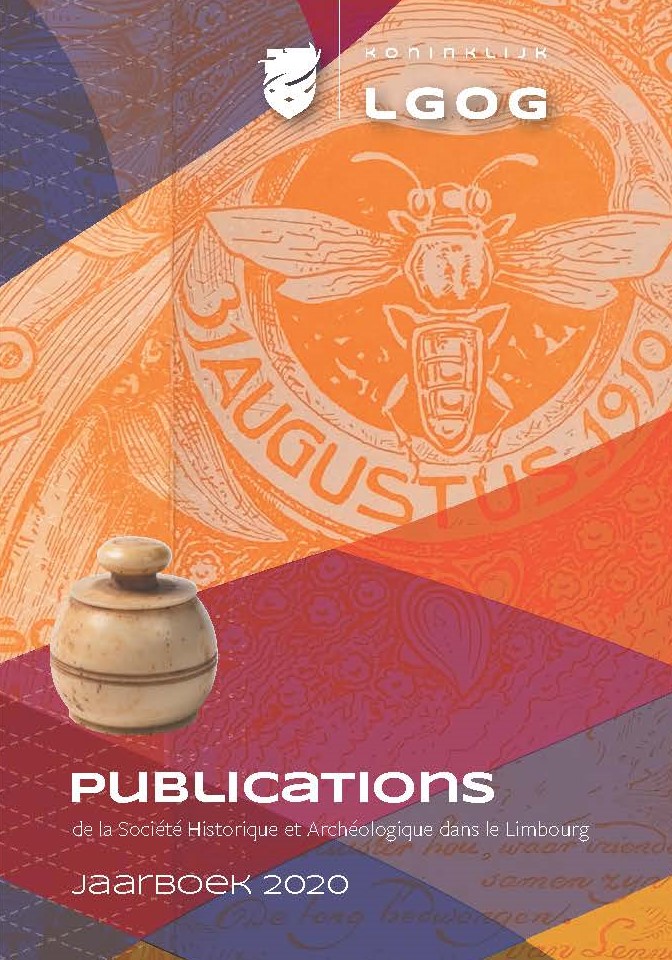Limburg en de Nederlandsche Taalen Letterkundige Congressen
Bijdragen uit de periferie 1849-1912
Samenvatting
In 1839 Belgium and the Netherlands were definitively separated from each other. Part of the arrangement was that Limburg east of the Meuse was separated from Belgium and, together with the fortress Maastricht, joined to the Netherlands as the Dutch province of Limburg (from here on in this article the name ‘Limburg’ always refers to the Dutch province Limburg, and not the Belgian province of the same name). As a result of these separations, the language situation changed both in Flanders and in Limburg. In Flanders, the French language, which was already frequently used by the upper classes, became the language of the administrative and judicial systems, despite the fact that Netherlandic was the language of the people, the church, and primary education. Without command of French it was impossible to climb the social ladder. Meanwhile, in Limburg Netherlandic became the language of public life. For a long time, mastery of French remained a distinguishing sign in social intercourse of the upper classes in Limburg, but in no way there was a threat from French to the use of Netherlandic.
In Flanders, especially in Ghent and Antwerp, a movement (the ‘Vlaamse Beweging’) soon arose that strived to put an end to the suppression of the Flemish identity by the French language, and to restore the pride of the Flemish people in their own Netherlandic (‘diets’) character. From 1849 onwards, Dutch-Belgian Netherlandic philologists organized three-day congresses, alternatingly in a Belgian and a Dutch city, to experience the common linguistic identity (the ‘Groot-Nederlandse Gedachte’), to promote the practice of the Netherlandic language and literature, and to raise the status of Netherlandic in Flanders. On the Flemish side, the novelist Pieter Ecrevisse and the poet Jan Michiel Dautzenberg played a prominent role. They belonged to the group of former Limburg citizens who, at the time of the separation, had opted for moving to Belgium.
In Limburg there was initially little interest in the Netherlandic Congresses. Here, the position of the Netherlandic cultural language was as weak as it was in Flanders, but it was not discriminated against. The primacy of Netherlandic was undisputed, and the Flemish Movement and the notion of ‘Great Netherlandic tribalism’ fell outside the field of interest. It was only after 1867, when the termination of the political relationship between the Netherlands and the German Union made it clear that Limburg’s future was definitively in the Netherlands, that the desire arose to organize a Netherlandic Linguistic and Literary Congress in Limburg’s capital, Maastricht. In addition to idealistic motives – further integration of Limburg into the Netherlands, promotion of the Netherlandic language and literature, stirring up Great Netherlandic tribalism – economic motives in the form of city promotion played a role. After all, the national press paid ample attention to Netherlandic Congresses, as well as to the accompanying programs, in which the organizing city would present its attractive features.
In 1873, when Maastricht applied for an organizational role, the 14th Congress was assigned to competing Leiden. This was partly due to a sharp statement by the Flemish liberal Julius Vuylsteke. He blamed Maastricht for francophilia and thus duplicity, the first rightfully so, the second unjustly. When it turned out that Leiden could not honor the election, the Congress was nevertheless assigned to Maastricht. Désiré Franquinet was the main man of the 14th Congress (1875). Michael Smiets and Jan Willem Brouwers displayed their rhetorical talents. Jos Habets made a valuable language-historical contribution, and Johannes van Vloten discussed Hendrik van Veldeke, with whom Netherlandic literature started around 1170.
In 1910 Maastricht was awarded the organization of another Congress, the 31st. Louis Lamberts Hurrelbrinck held the chairmanship with agile genius. Prof. Jan te Winkel spoke about Hendrik van Veldeke and launched the plan to erect a statue, with thanks to secretary Joseph Endepols who originated the idea. In particular the Flemish speakers made a great impression. They celebrated the expected switch to Flemish of Ghent University as the crowning glory of the work of the Flemish Movement. In the Momus Society in the evening, the Great Netherlandic tribal kinship was celebrated under the motto ‘De kop moet erop’ (Put the head on top) sung to the tune of ‘Piet Hein’, and the boisterous singing of the anthems of the Netherlands (‘Wilhelmus’) and Flanders (‘De Vlaamse Leeuw’). In any case, the accompanying program was successful.
What was the meaning of the Congresses? In the first place, they were the only platform on which Netherlandic linguists and literators from North and South were able to meet. Their importance, in part via the celebration of the brotherhood in societies and coffee houses, should not be underestimated. It nourished the Great Netherlandic polity, although the Flemish had expected more than just understanding from their northern colleagues. The most important product of the Congresses is the great Dictionary of the Netherlandic language (Woordenboek der Nederlandsche Taal, 43 volumes) which was completed only at the end of the 20th century.
Without a doubt, the two Congresses held in Maastricht were important for the prestige of the Netherlandic language and literature in Limburg, and for the further integration of this province into the Netherlands. Furthermore, they were of great significance for the promotion of Maastricht as a city of sweet life, situated beautifully near the Meuse, at the foot of mount St. Peter.
Downloads
Downloads
Gepubliceerd
Nummer
Sectie
Licentie

Dit werk wordt verdeeld onder een Naamsvermelding 4.0 Internationaal licentie.
Auteurs behouden het volledige auteursrecht op hun werk en verlenen het tijdschrift het recht van eerste publicatie. Artikelen worden verspreid onder de voorwaarden van de Creative Commons Naamsvermelding 4.0 Internationaal (CC BY 4.0).



